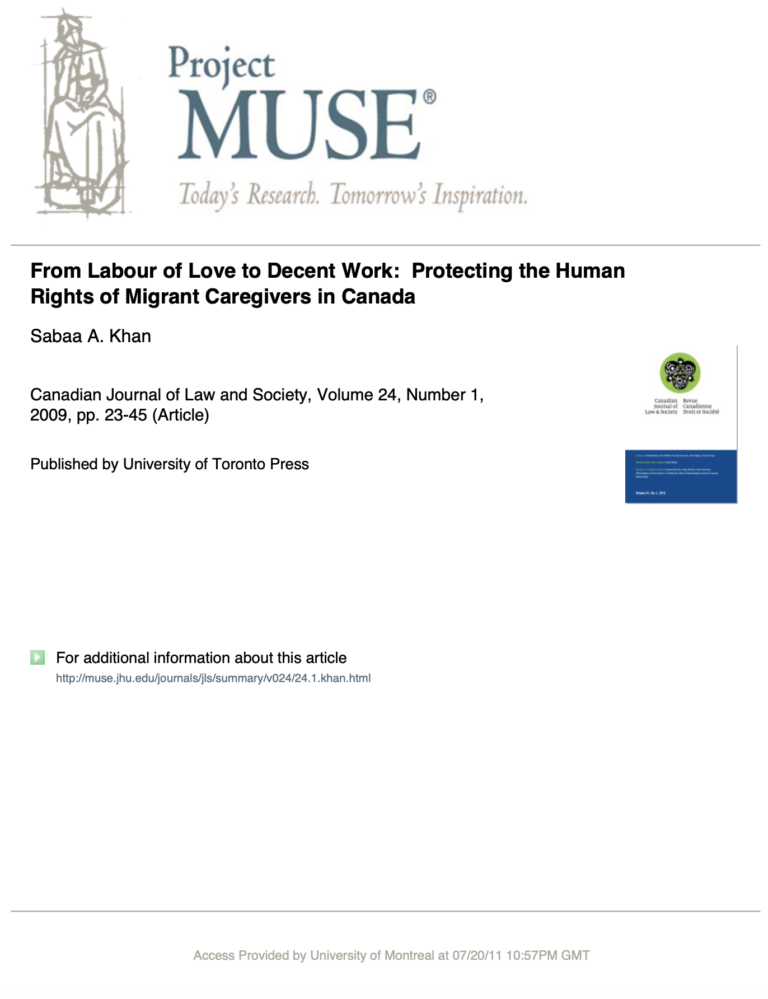This article examines Canada’s federal Live-in Caregiver Program (LCP) from the perspective of international human-rights and labour norms pertaining to the protection of migrant workers. Showing that the current legal framework of the LCP restricts migrant caregivers from effectively exercising a range of human and labour rights, the author argues for the removal of the labour (im)migration program’s unnecessary structural obstacles and proposes a reformulation of the LCP under the principles and guidelines of the International Labour Organization’s Multilateral Framework on Labour Migration, in order to transform this controversial labour policy into a decent work opportunity.

